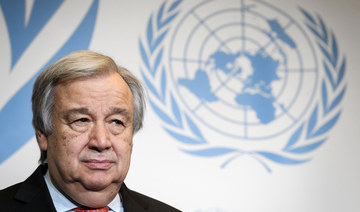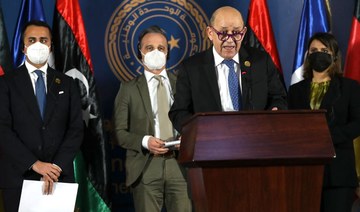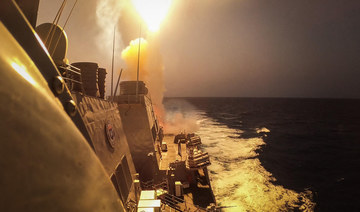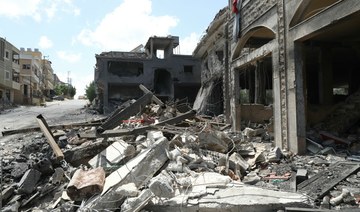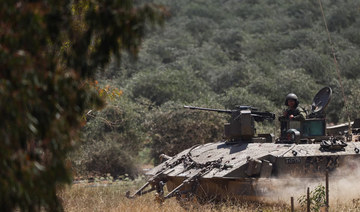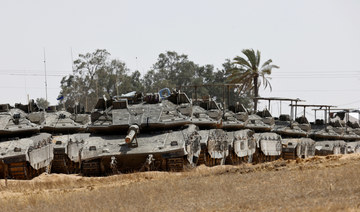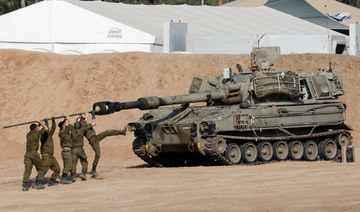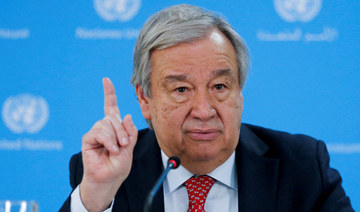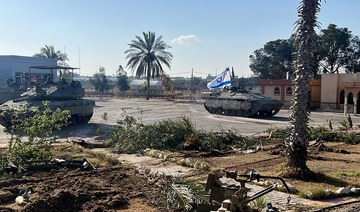ABOARD GEO BARENTS: Libya’s rival sides reached an initial agreement on the withdrawal of foreign fighters and mercenaries from the North African nation, the United Nations said. It is a key step toward unifying the violence-wracked country.
The dispute over mercenaries and foreign fighters has long been an obstacle, particularly ahead of Libya’s landmark general elections due in December.
Libya has been engulfed in chaos since a NATO-backed uprising toppled longtime dictator Muammar Qaddafi in 2011. The oil-rich country was for years split between rival governments, one based in the capital of Tripoli and the other in the eastern part of the country. Each side is backed by different foreign powers and militia groups.
The UN mission mediating between the rivals said a 10-member joint military commission, with five representatives from each side, signed a “gradual and balanced” withdrawal deal Friday, at the end of three days of talks facilitated by the UN in Geneva.
The plan would be “the cornerstone for the gradual, balanced, and sequenced process of withdrawal” of the mercenaries and foreign forces, the mission said.
Jan Kubis, the UN special envoy for Libya, welcomed the move as “another breakthrough achievement.”
Libya’s split came into the forefront in 2019, when self-styled military commander Khalifa Haftar, allied with the east-based administration, launched an offensive to take Tripoli from armed militias loosely allied with the UN-supported but weak government in the country’s capital.
Haftar was backed by Egypt, the UAE, Russia and France. But, his 14-month campaign and march on Tripoli ultimately failed in June 2020, after Turkey sent troops to help the UN-supported administration, which also had the backing of Qatar and Italy.
After the fighting largely stalemated, subsequent UN-sponsored peace talks brought about a cease-fire last October and installed an interim government that is expected to lead the country into the December elections. The cease-fire deal also included the departure of foreign forces and mercenaries within three months — something that was never implemented.
Friday’s deal “creates a positive momentum that should be built upon to move forward toward a stable and democratic stage, including through the holding of free, credible and transparent national elections on 24 December, with results accepted by all,” Kubis said.
The sides said they would now go back discuss this with their base and concerned international parties “to support the implementation of this plan and the respect of Libya’s sovereignty.”
The deal also called for the deployment of UN observers to monitor the cease-fire before the implementation of the withdrawal plan.
In December, then UN acting envoy for Libya Stephanie Williams estimated that there have been at least 20,000 foreign fighters and mercenaries in Libya over the past few years, including Russians, Syrians, Sudanese, and Chadians.
Though the agreement on mercenaries is seen as a step forward, earlier this month, Libyan lawmakers in the east dealt a setback to the peace process by voting to reschedule the parliamentary elections for January, a month later.
It wasn’t immediately clear how the lawmakers’ move would translate into a postponement of the vote.
Libyan rivals ink initial deal on pullout of mercenaries
https://arab.news/wbzan
Libyan rivals ink initial deal on pullout of mercenaries
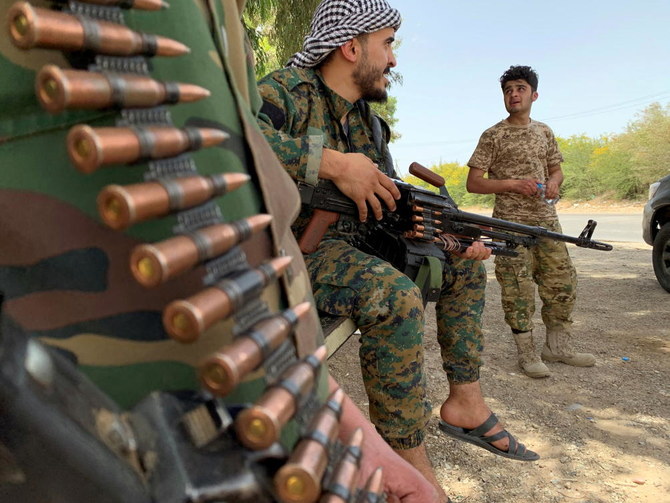
- The dispute over mercenaries and foreign fighters has long been an obstacle
- There have been at least 20,000 foreign fighters and mercenaries in Libya over the past few years
Hezbollah carries out drone, artillery attacks on Israeli forces, equipment
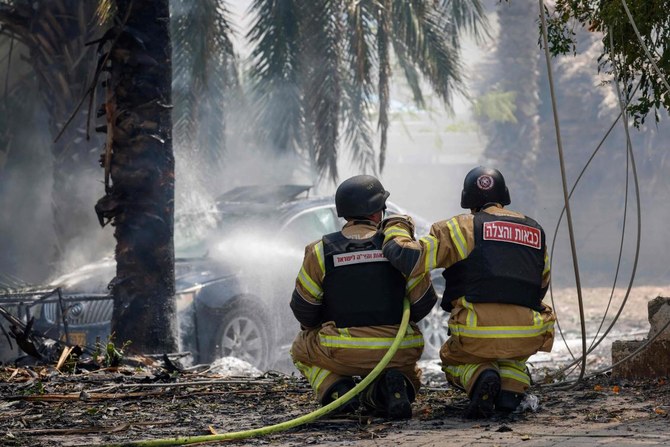
- Group claims it ‘killed, wounded’ soldiers in strike on Yiftah barracks
- Lebanese Foreign Ministry warns of risk of ‘humanitarian catastrophe’ in Rafah
BEIRUT: Hezbollah on Tuesday carried out a series of drone and artillery attacks on Israeli forces and other targets under the blanket slogan of “Supporting the Gaza Resistance.”
The group said it targeted “officers and soldiers while they were in the courtyard of the Yiftah barracks” and that its strikes were successful in “killing and wounding them.”
It also “targeted with other drones one of the Iron Dome platforms located south of the Ramot Naftali barracks, which was directly hit and damaged.”
A third target was “spy equipment at the Al-Sammaqa site in the Kafr Shuba hills,” while a fourth was “Israeli soldiers as they were moving inside a bulwark at the Israeli Al-Rahib military site,” on which it “achieved a direct hit.”
Israeli media said that “six explosive-rigged drones were launched from Lebanon, five of which exploded in the Upper Galilee, causing damage.”
Officials at the Kiryat Shmona settlement asked residents there to “stay in shelters due to fears of drone infiltration.”
Israeli newspaper Yedioth Ahronoth said Hezbollah’s operations included “launching rockets and drones toward border areas in the Upper Galilee” and that an Israeli warplane dropped heat balloons over the area where the drones entered.
Explosions were heard in Yiftah and Ramot Naftali, it said.
Israeli Channel 12 said air defenses intercepted a drone launched from southern Lebanon toward Galilee, while another exploded without causing any damage.
According to the Israeli Army channel: “During April, four Israelis were killed by Hezbollah fire on the northern border and 33 others were injured, including five who sustained serious injuries.”
The Israeli military responded to Hezbollah’s actions by conducting raids and using artillery to shell Lebanese border towns, particularly Aita al-Shaab.
Meanwhile, the Lebanese Foreign Ministry warned against “any escalation by the Israeli occupation forces against the city of Rafah,” which it said would cause a “severe humanitarian disaster for more than 1 million Palestinians who have been displaced to this area as a result of the Israeli aggression on the Gaza Strip that has been ongoing for seven months.”
UK marine agency reports two explosions in Gulf of Aden

- The Houthi militia that controls the most populous parts of Yemen and is aligned with Iran have staged attacks on ships in the waters off the country for months
AL-MUKALLA: The UK Maritime Trade Operations reported on Tuesday two explosions near a ship in the Gulf of Aden as international marine task forces in the Red Sea shot down drones fired by the Yemeni Houthi militia.
The skipper of a ship transiting the gulf notified the UK maritime agency of two explosions “in close proximity to” the ship 82 nautical miles south of Yemen’s southern city of Aden, and that the ship and crew were unharmed.
The incident prompted the UKMTO to encourage ships traveling in the Gulf of Aden to be cautious and to report “any suspicious activity.”
This comes as the US military and the EU naval operation in the Red Sea said they shot down Houthi drones in the previous 24 hours.
US Central Command announced in a statement on Tuesday that its forces destroyed on Monday one uncrewed aerial system fired by the Houthis from Yemeni territory under their control, targeting foreign commercial and navy ships in the Red Sea.
“It was determined the UAS presented an imminent threat to US, coalition forces, and merchant vessels in the region,” USCENTCOM said.
The EU mission in the Red Sea, known as Eunavfor Aspides, said an Italian frigate shot down one drone on Monday while responding to a strike conducted by the Houthis from regions under their control in Yemen.
Until Tuesday afternoon, the Houthis had not claimed responsibility for new strikes on commercial or navy ships in the Red Sea or Gulf of Aden.
Since November, the Houthis have seized a commercial ship, sunk another, and launched hundreds of drones and ballistic missiles against vessels in the Red Sea, Gulf of Aden, Bab Al-Mandab Strait, and, most recently, the Indian Ocean in support of the Palestinians against Israel’s war in Gaza.
On Friday, the Houthis said they will expand their campaign against Israel to the Mediterranean, targeting Israel-linked ships there and any place within range of their drones and missiles.
Meanwhile, the Houthis claimed on Monday to have uncovered an “espionage” network working for the US and Israel.
Houthi media broadcast images and videos of 10 individuals from the western province of Hodeidah who admitted to being recruited by Yemeni military officers at military locations under government control.
They claimed that these individuals were given the task of gathering information about the locations of missile and drone launchers, boats, weapons storage facilities, trenches, and movements of the Houthi forces, and that their information assisted US and UK strikes at those locations.
The Houthis accused Ammar Mohammed Abdullah Saleh, a former intelligence official and brother of Tareq Saleh, a member of the country’s presidential council, of running the dismantled network from a military base on the country’s western coast.
In 2022, a Houthi court in Sanaa sentenced Ammar Saleh to death in absentia for allegedly damaging Yemeni military missiles and air-defense systems while serving as the deputy director of the National Security Bureau.
Yemen’s Minister of Information Moammar Al-Eryani described the Houthi claims as “fabricated lies,” accusing them of torturing “innocent” people who appeared on the footage to convince them to admit to crimes they did not commit.
He added that the Houthis were using Israel’s war in Gaza to lay the groundwork for a new military operation against the Yemeni government.
“The terrorist Houthi militia’s scapegoating of innocent inhabitants of Tehama (Hodeidah), dictating them these lines as depicted in the false scenes it disseminated, and forcing them to make unfounded confessions through torture, pressure, and coercion,” Al-Eryani said on X.
Human Rights Watch says Israel attack on Lebanon rescuers was unlawful
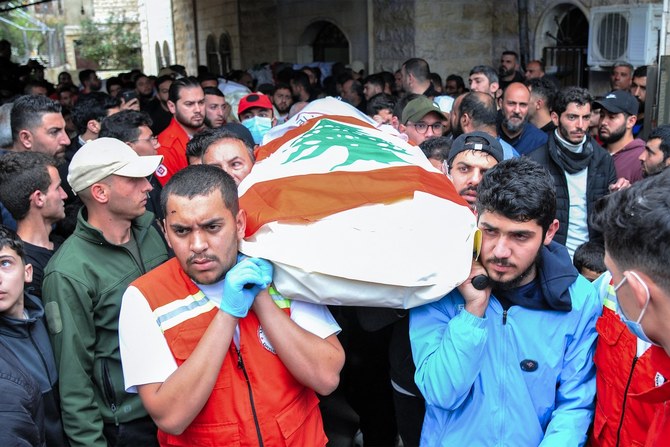
- HRW’s Lebanon researcher Ramzi Kaiss: ‘Israeli forces used a US weapon to conduct a strike that killed seven civilian relief workers in Lebanon who were merely doing their jobs’
- Activists from the Gathering of Free University Students organized a demonstration in front of the American University of Beirut campus in support of Palestine and the people of Gaza
BEIRUT: Human Rights Watch on Tuesday said an Israeli strike in Lebanon that killed seven first responders was “an unlawful attack on civilians,” and urged Washington to suspend the sale of weapons to Israel.
“An Israeli strike on an emergency and relief center” in the southern village of Habbariyeh on March 27 “killed seven emergency and relief volunteers,” constituting an “unlawful attack on civilians that failed to take all necessary precautions,” HRW said in a statement.
It said the massacre was committed against “a civil society association that provides emergency services, ambulances, first-aid training, and primary care and relief services in Lebanon.”
Furthermore, HRW said it “did not find any evidence of the presence of military targets at the site that was targeted with the acknowledgment of the Israeli army, which did not take possible precautions to ensure that the target was military … which makes the raid illegal.”
Ramzi Kaiss, HRW’s Lebanon researcher, said: “Israeli forces used a US weapon to conduct a strike that killed seven civilian relief workers in Lebanon who were merely doing their jobs.”
He said the Israeli army used US-made ammunition to carry out the raid.
HRW said it “sent a letter containing the results of reviewing the photos and videos of the site before and after the raid, including a video of the remnants of the ammunition found at the site, and questions to the Israeli army and the US State Department on April 19, but did not receive any response.”
The rights group said it found a metal fragment at the site of the bombing with “MPR 500” written on it, confirming that it is from a 500-pound general-purpose bomb made by Israeli company Elbit Systems, and the fragments and fins are part of a joint direct attack munition set manufactured by American company Boeing.
HRW urged the US to “immediately suspend arms sales and military assistance to Israel given evidence that the Israeli military is using US weapons unlawfully.”
The organization asked Lebanon’s Foreign Ministry to “take immediate action by submitting a declaration to the International Criminal Court, allowing it to investigate crimes falling within its jurisdiction committed on Lebanese territory since October 2023, and prosecute the perpetrators.”
A group of activists from the Gathering of Free University Students organized a demonstration in front of the American University of Beirut campus in support of Palestine and the people of Gaza.
The participants raised a large banner supporting “resistance and boycott until the disintegration of the Israeli entity and the establishment of one Palestine.”
Egypt urges all parties to exert more pressure to end Gaza conflict
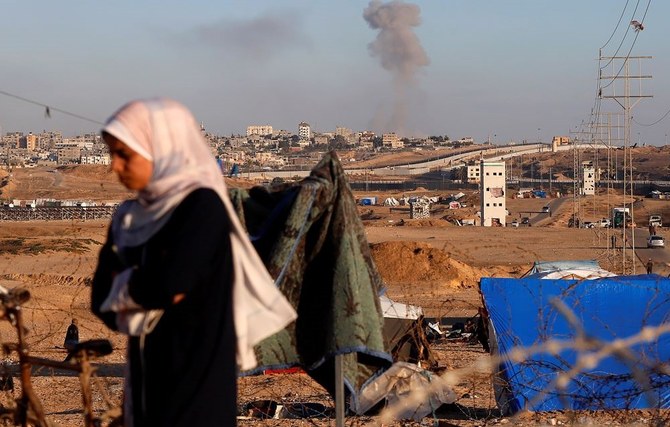
- President Abdel Fattah El-Sisi welcomes progress in recent talks
- Cairo warns Israel that attack on Rafah threatens over 1m in Gaza
CAIRO: Egypt’s President Abdel Fattah El-Sisi has welcomed Monday’s developments in peace talks about finalizing a truce in Israel’s war on Gaza.
El-Sisi said he was “closely following the positive developments pertinent to the ongoing negotiations to reach a comprehensive truce in the Gaza Strip.”
He called on all parties to exert more efforts to reach an agreement that will end the human tragedy of the Palestinian people and finalize the exchange of hostages and prisoners.
Hamas accepted an Egypt-Qatar mediated ceasefire proposal on Monday. The high-stakes diplomatic moves and military brinkmanship left a glimmer of hope alive — but only barely — for an accord that could bring at least a pause in the seven-month-old war that has devastated the Gaza Strip.
An armed conflict between Israel and Hamas-led Palestinian militant groups has been taking place chiefly in and around the Gaza Strip since Oct. 7. It began when Hamas launched a surprise attack on southern Israel from the Gaza Strip, killing around 1,200 people and taking 150 hostages.
Subsequent Israeli strikes against Gaza have driven around 80 percent of the territory’s population of 2.3 million from their homes and caused vast destruction to apartments, hospitals, mosques and schools across several cities.
The Palestinian death toll in Gaza has soared to more than 34,500 people, according to local health officials.
Meanwhile, Egypt’s Foreign Ministry said that it has warned of the dangers of a possible Israeli military operation in Gaza’s Rafah region, “since this escalatory act entails grave humanitarian dangers threatening more than 1 million Palestinians residing in this region.”
It called on Israel to exercise “utmost restraint, and refrain from further escalation at this extremely sensitive timing of ceasefire negotiations, spare the lives of Palestinian civilians who have been enduring an unprecedented humanitarian catastrophe since the outbreak of the war.”
It said that Egypt continues talking with all parties to prevent the situation from deteriorating.
Meanwhile Egypt’s Foreign Minister Sameh Shoukry discussed the Rafah situation with his UAE counterpart Sheikh Abdullah bin Zayed Al-Nahyan in a phone call.
They exchanged views regarding the possibility of Israeli forces carrying out a military operation in the besieged city.
Shoukry reiterated his warning of the dangers of an Israeli military escalation in Rafah, which is considered the last relatively safe area in the Gaza Strip and refuge for more than a million Palestinians.
The ministers stressed the urgency of reaching a truce agreement that allows for the swapping of hostages and detainees, and ensure a permanent ceasefire.
They agreed to continue talks with various parties to prevent the conflict from spreading to the region.
UN says its access to Gaza’s Rafah crossing ‘denied’ by Israel
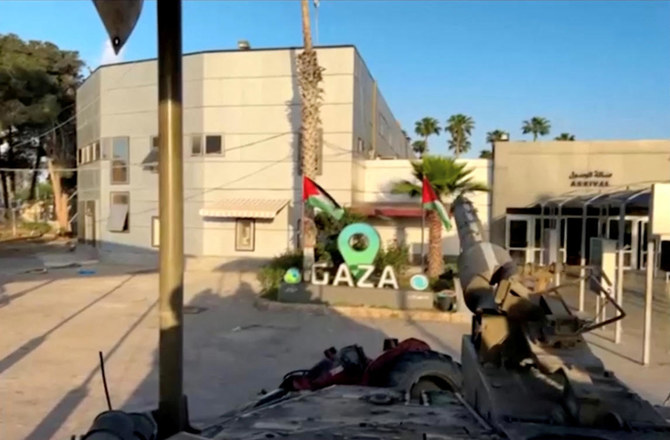
- UN says only has one day of fuel reserves in Gaza
GENEVA: Israeli authorities have denied the UN access to the closed Rafah crossing, the main entry point for humanitarian aid into the Gaza Strip, the United nations said Tuesday .
Jens Laerke, spokesman for the UN’s humanitarian agency OCHA, said there was only a one-day buffer of fuel to run humanitarian operations inside the besieged Palestinian territory.
“We currently do not have any physical presence at the Rafah crossing as our access... has been denied by COGAT,” he said, referring to the Israeli agency that oversees supplies into the Palestinian territories.
“We have been told there will be no crossings of personnel or goods in or out for the time being. That has a massive impact on how much stock do we have.
“There’s a very, very short buffer of one day of fuel available.
“As fuel only comes in through Rafah, the one day buffer is for the entire operation in Gaza.”
If no fuel comes in, “it would be a very effective way of putting the humanitarian operation in its grave,” said Laerke.
“Currently, the two main arteries for getting aid into Gaza are currently choked off,” he said, referring to the Rafah crossing from Egypt and the Kerem Shalom crossing from Israel.



